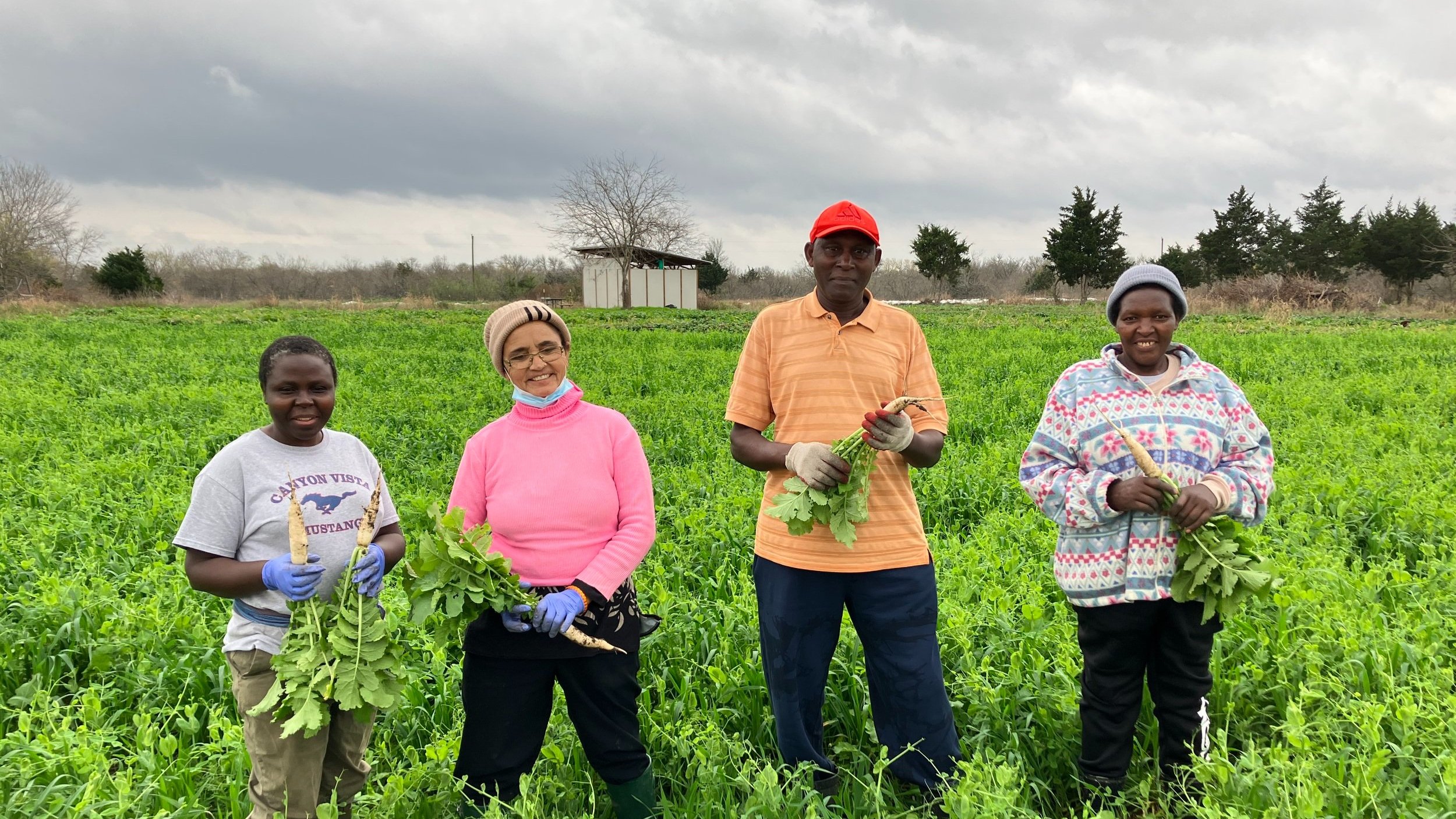
Regenerative Agriculture
SUPPORTING THE
FARM ECOSYSTEM
The Refugee Collective Farm’s Regenerative Agriculture practices are codified in our Resilient Farm Plan, the first of its kind in Texas.
The Refugee Collective partnered with the National Center for Appropriate Technology (NCAT) and the Carbon Cycle Institute (CCI) on a Southern Sustainable Agriculture Research and Education (SSARE) grant to complete the Resilient Farm Plan. The plan identifies the different opportunities for carbon sequestration on a given landscape. Through the use of the COMET-Farm modeling tool developed by Colorado State University, we are able to calculate our farm’s potential for carbon sequestration. Once fully implemented, our Resilient Farm Plan will help us to sequester 345 metric tons of CO2e per year from the atmosphere, enriching the natural carbon cycle on the land. This is the equivalent of taking 77 cars off the road per year.
Practices implemented on the farm include no-till planting methods, conservation cover, cover cropping, crop rotation, nutrient management, tree plantings for wind-break establishment, and rotational grazing of our flock of 150 laying hens to help fertilize our vegetable fields ahead of planting.
The beneficial effects on soil and ecosystem health from these regenerative methods serve as a foundation for the health of the refugee community who benefit from the farm’s programs.

